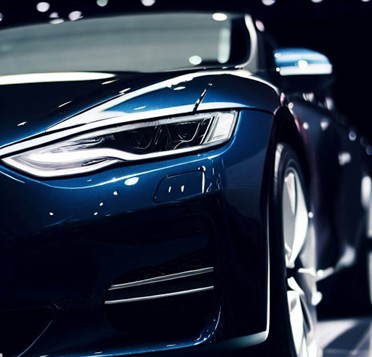The Future of Commercial Vehicles: A Guide to the Emerging Trends and Technologies
 Commercial vehicles are essential for the transportation of goods and people across the world. They play a vital role in the economy, the environment, and society at large. However, as new technologies emerge and reshape the market, the commercial vehicle industry has faced unprecedented challenges, as well as opportunities. Specifically, key trends are driving this industrial transformation which will impact consumers, manufacturers, and regulators.
Commercial vehicles are essential for the transportation of goods and people across the world. They play a vital role in the economy, the environment, and society at large. However, as new technologies emerge and reshape the market, the commercial vehicle industry has faced unprecedented challenges, as well as opportunities. Specifically, key trends are driving this industrial transformation which will impact consumers, manufacturers, and regulators.
New Powertrains: Cleaner, Cheaper, and More Efficient
One of the most significant trends in the commercial vehicle industry is the shift from conventional diesel engines to alternative powertrains, which offer lower emissions, lower operating costs, and higher efficiency. By 2030, more than 35% of all light commercial vehicles (LCVs) sold will be new-energy vehicles, of which more than 70% will be battery-powered electric vehicles. Similarly, roughly 26% of all heavy-duty trucks (HDTs) will be new-energy vehicles.
The adoption of new powertrains will vary by region and use case, depending on factors such as availability of natural resources, public policy support, infrastructure development, customer preferences, and total cost of ownership. For example, liquefied natural gas (LNG) is expected to gain popularity in markets with abundant natural gas supply or strong policy incentives, such as China and Europe. LNG offers fast refueling and long-range capabilities for HDTs. On the other hand, battery electric vehicles (BEVs) are likely to dominate in urban areas and short-haul applications, where emissions regulations are stricter and charging infrastructure is more accessible. BEVs offer zero tailpipe emissions and lower maintenance costs for LCVs and MDTs.
expected to gain popularity in markets with abundant natural gas supply or strong policy incentives, such as China and Europe. LNG offers fast refueling and long-range capabilities for HDTs. On the other hand, battery electric vehicles (BEVs) are likely to dominate in urban areas and short-haul applications, where emissions regulations are stricter and charging infrastructure is more accessible. BEVs offer zero tailpipe emissions and lower maintenance costs for LCVs and MDTs.
Other new-energy technologies that show promise for commercial vehicles include hydrogen fuel cells (FCEVs, or fuel cell electric vehicle), which offer high energy density and long range for HDTs; plug-in hybrid electric vehicles (PHEVs), which combine electric and conventional powertrains for flexibility and efficiency; and biofuels, which can be blended with diesel or used as a standalone fuel for lower emissions.
Autonomous Driving: Safer, Smarter, and More Productive
Another major trend in the commercial vehicle industry is the rapid progress in autonomous driving technology, which has the potential to improve safety, efficiency, and productivity of commercial transportation. By 2030, more than 40% of all new commercial vehicles sold will have at least level 3 autonomy (conditional automation), which means that the vehicle can perform all driving tasks under certain conditions, but the driver must be ready to intervene at any time. Moreover, more than 10% of all new commercial vehicles sold will have level 4 or 5 autonomy (high or full automation), which means that the vehicle can perform all driving tasks under all or most conditions, without human intervention.
perform all driving tasks under certain conditions, but the driver must be ready to intervene at any time. Moreover, more than 10% of all new commercial vehicles sold will have level 4 or 5 autonomy (high or full automation), which means that the vehicle can perform all driving tasks under all or most conditions, without human intervention.
The adoption of autonomous driving also will vary by region and use case, depending on factors such as regulatory environment, customer acceptance, technological maturity, and business case. For example, autonomous driving is expected to be more prevalent in highway scenarios, where traffic conditions are more predictable and less complex than in urban areas. Autonomous driving can also enable “platooning”, which is a technique where multiple vehicles travel closely together to reduce aerodynamic drag and fuel consumption. Furthermore, autonomous driving can enhance driver comfort and safety by reducing fatigue and human error.
Connectivity: More Data, More Services, More Value
A third major trend in the commercial vehicle industry is the explosion in connectivity, which enables data exchange between vehicles, infrastructure, and other devices. Connectivity can create new value for customers, manufacturers, and regulators by enabling new services and business models that improve performance, efficiency, and sustainability of commercial transportation. By 2030, more than 90% of all new commercial vehicles sold will have embedded connectivity, which means that they can communicate with external systems without relying on smartphones or aftermarket devices.
The benefits of connectivity for commercial vehicles are manifold. For consumers, connectivity can provide real-time information on vehicle location, status, and performance, as well as predictive maintenance and remote diagnostics. Connectivity also can enable new mobility solutions such as shared fleets, on-demand transportation, and dynamic routing. For manufacturers, connectivity can generate valuable data insights on customer behavior, preferences, and needs, as well as product performance, quality, and reliability. Connectivity also can enable new revenue streams from digital services and platforms that enhance customer loyalty and retention. For regulators, connectivity can facilitate compliance monitoring and enforcement of safety and environmental standards. This technology also enables smart traffic management and infrastructure optimization, which reduces congestion and carbon emissions.
The Future Is Now
The commercial vehicle industry is undergoing a radical transformation as new technologies disrupt the market and create new opportunities and challenges for all stakeholders. Customers, manufacturers, and regulators need to adapt to the changing landscape and embrace the innovation that will shape the future of commercial transportation. The future is now, and the commercial vehicle industry is ready to take the fast track to it.
We at the Herd Law Firm, PLLC, are drivers and motorcycle riders, too! We support drivers, bikers and motorcyclists injured on the road, and have successfully represented such victims seeking the assistance and compensation they so need and deserve.
8/10/2023
Sources:







